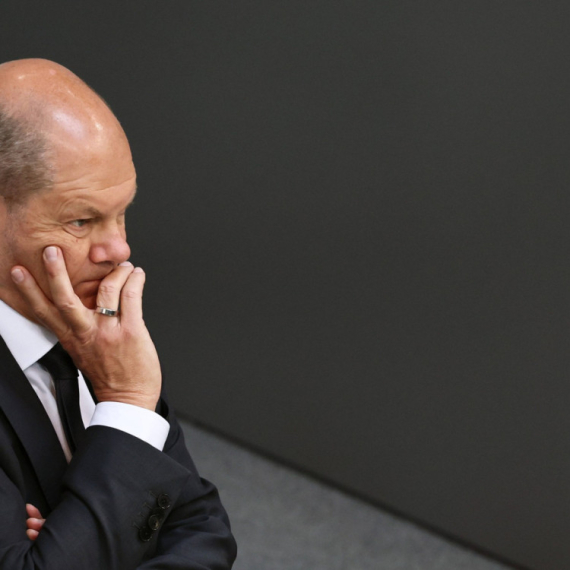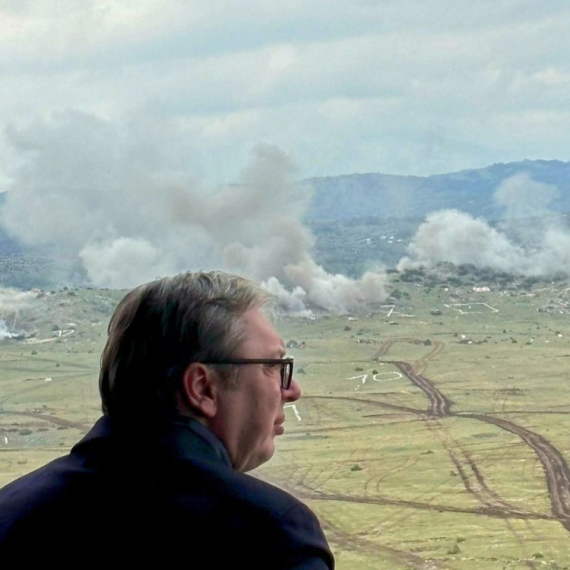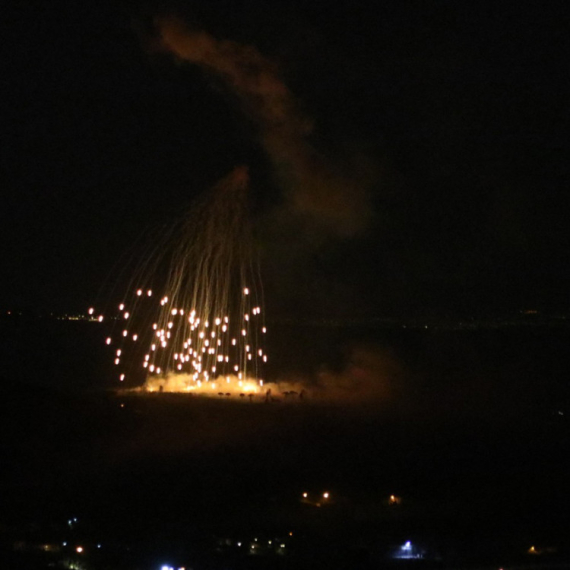“Surplus ammunition poses regional security threat”
Surplus ammunition and other types of ordnance pose one of the greatest security threats in the region, Southeast Europe Cooperation Process (SEECP) reps say.
Thursday, 12.04.2012.
10:34

Surplus ammunition and other types of ordnance pose one of the greatest security threats in the region, Southeast Europe Cooperation Process (SEECP) reps say. At a meeting in Belgrade on Thursday, the participants estimated their countries had 160,000 tons of ammunition that should be destroyed. “Surplus ammunition poses regional security threat” The best way to solve that and other problems is cooperation through numerous regional projects, the SEECP members agreed. "We have concluded the surplus of military ordnance and equipment is not just a threat to the people, but also a burden to the armies and countries of the region," the host of the meeting, Serbia's Defense Minister Dragan Sutanovac said. “Serbia has around 8,000 tons of ammunition to destroy,” he specified. "It is not ammunition with potential for use, but one that could cause problems in the future, so we also wish to help other countries in the region, which are not able to solve that problem," Sutanovac noted. “Serbia offered the services of Tehnicki remontni zavod Kragujevac, a military facility for ammunition production and disposal, which many of the meeting participants accepted,” the Serbian defense minister explained. He also met separately with his colleagues from Bulgaria, Turkey and Montenegro during the meeting. "Besides the already established interest in defense cooperation concerning training, there is also interest in cooperation regarding the defense industry," Sutanovac stated, adding that an agreement on a EUR 10mn Turkish donation for the reconstruction and conversion of the Morava airport, near Kraljevo, would be signed by the end of the month. Bosnia-Herzegovina's Deputy Defense Minister Mirko Okolic told reporters after the meeting his country had the biggest problem with surplus ordnance of all the countries in the region. According to him, Bosnia-Herzegovina has 18,500 tons of ammunition that should be destroyed urgently, especially because of the fact the country has no appropriate facilities to store that ordnance. Delegations from Serbia, Croatia, Montenegro, Bosnia-Herzegovina, Macedonia, Slovenia, Albania, Romania, Bulgaria, Turkey and Greece attended the meeting, entitled "Improving the level of cooperation in the region to address the issue of surplus weapons." Representatives of the UN, EU, NATO, OSCE, Regional Cooperation Council and Centre for Security Cooperation were also present. Serbia will hold the SEECP chairmanship until July 2012. Twelve countries take part in the work of the organization. The SEECP goals are cooperation regarding security, stability, economy, environment protection, humanitarian, social and cultural issues and the battle against organized crime, terrorism and narcotics, weapons and human trafficking. Opening the ministerial conference, Sutanovac said that defense and security were one of the most important forms of cooperation between regional states. Sutanovac noted that, after having been granted the candidate status for EU membership, Serbia started to take part in crisis-management operations and the EU Common Security Policy. “The EU Integration is our strategic goal, and regional cooperation is one of the pillars of Serbia's foreign policy,” he said, adding that Serbia backed EU and international security integrations of all neighbors. Dragan Sutanovac (Tanjug, file) Tanjug
“Surplus ammunition poses regional security threat”
The best way to solve that and other problems is cooperation through numerous regional projects, the SEECP members agreed."We have concluded the surplus of military ordnance and equipment is not just a threat to the people, but also a burden to the armies and countries of the region," the host of the meeting, Serbia's Defense Minister Dragan Šutanovac said.
“Serbia has around 8,000 tons of ammunition to destroy,” he specified.
"It is not ammunition with potential for use, but one that could cause problems in the future, so we also wish to help other countries in the region, which are not able to solve that problem," Šutanovac noted.
“Serbia offered the services of Tehnički remontni zavod Kragujevac, a military facility for ammunition production and disposal, which many of the meeting participants accepted,” the Serbian defense minister explained.
He also met separately with his colleagues from Bulgaria, Turkey and Montenegro during the meeting.
"Besides the already established interest in defense cooperation concerning training, there is also interest in cooperation regarding the defense industry," Šutanovac stated, adding that an agreement on a EUR 10mn Turkish donation for the reconstruction and conversion of the Morava airport, near Kraljevo, would be signed by the end of the month.
Bosnia-Herzegovina's Deputy Defense Minister Mirko Okolić told reporters after the meeting his country had the biggest problem with surplus ordnance of all the countries in the region. According to him, Bosnia-Herzegovina has 18,500 tons of ammunition that should be destroyed urgently, especially because of the fact the country has no appropriate facilities to store that ordnance.
Delegations from Serbia, Croatia, Montenegro, Bosnia-Herzegovina, Macedonia, Slovenia, Albania, Romania, Bulgaria, Turkey and Greece attended the meeting, entitled "Improving the level of cooperation in the region to address the issue of surplus weapons." Representatives of the UN, EU, NATO, OSCE, Regional Cooperation Council and Centre for Security Cooperation were also present.
Serbia will hold the SEECP chairmanship until July 2012. Twelve countries take part in the work of the organization.
The SEECP goals are cooperation regarding security, stability, economy, environment protection, humanitarian, social and cultural issues and the battle against organized crime, terrorism and narcotics, weapons and human trafficking.
Opening the ministerial conference, Šutanovac said that defense and security were one of the most important forms of cooperation between regional states.
Šutanovac noted that, after having been granted the candidate status for EU membership, Serbia started to take part in crisis-management operations and the EU Common Security Policy.
“The EU Integration is our strategic goal, and regional cooperation is one of the pillars of Serbia's foreign policy,” he said, adding that Serbia backed EU and international security integrations of all neighbors.













































Komentari 3
Pogledaj komentare